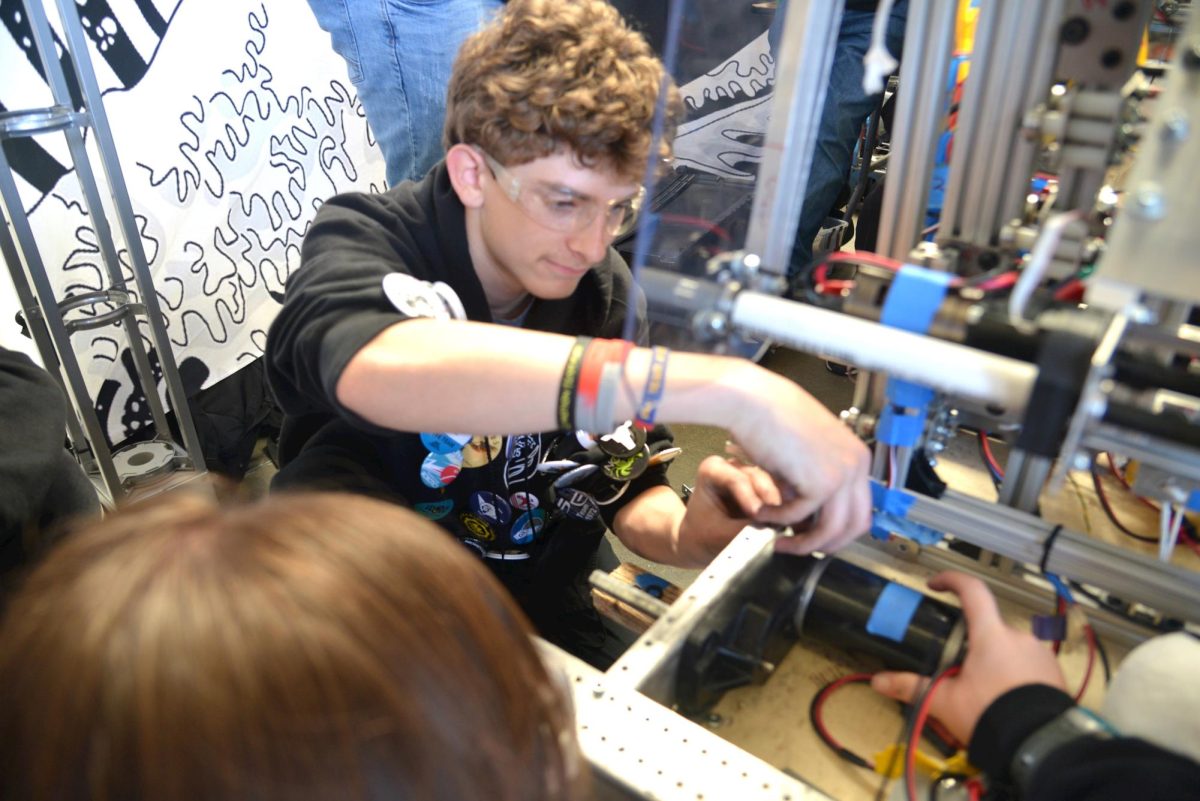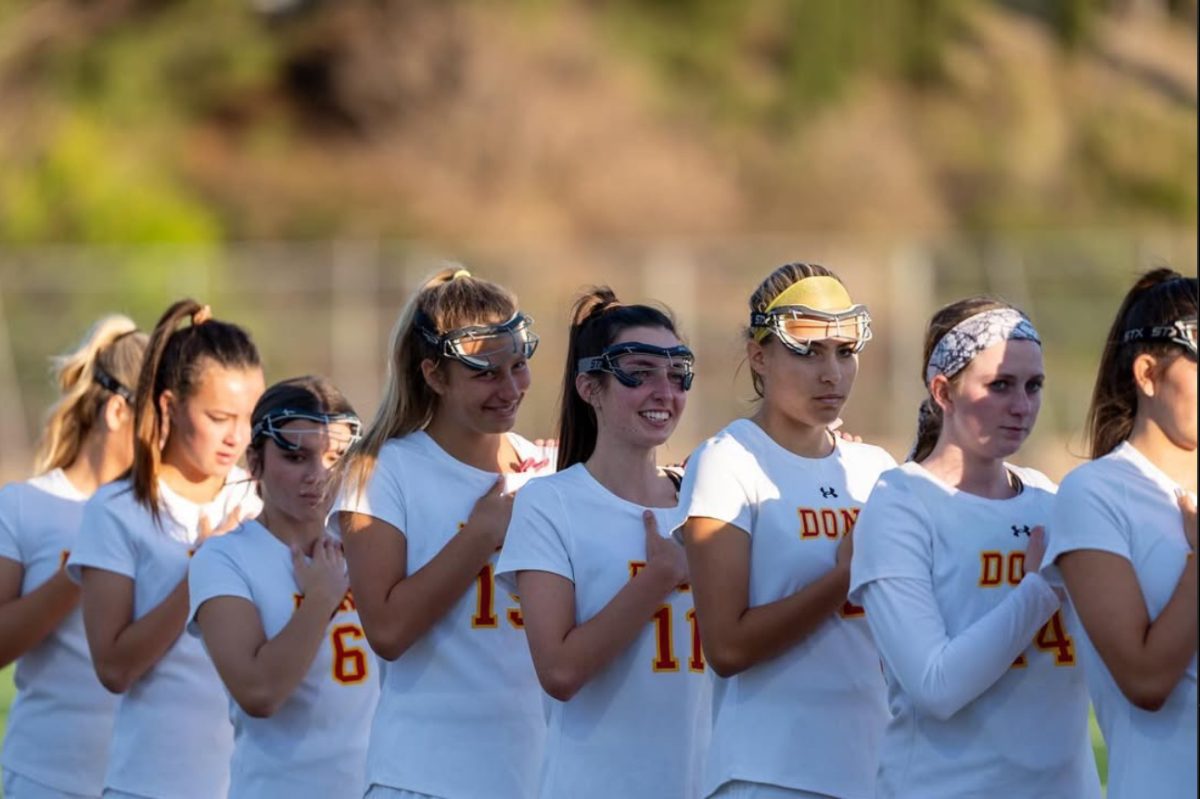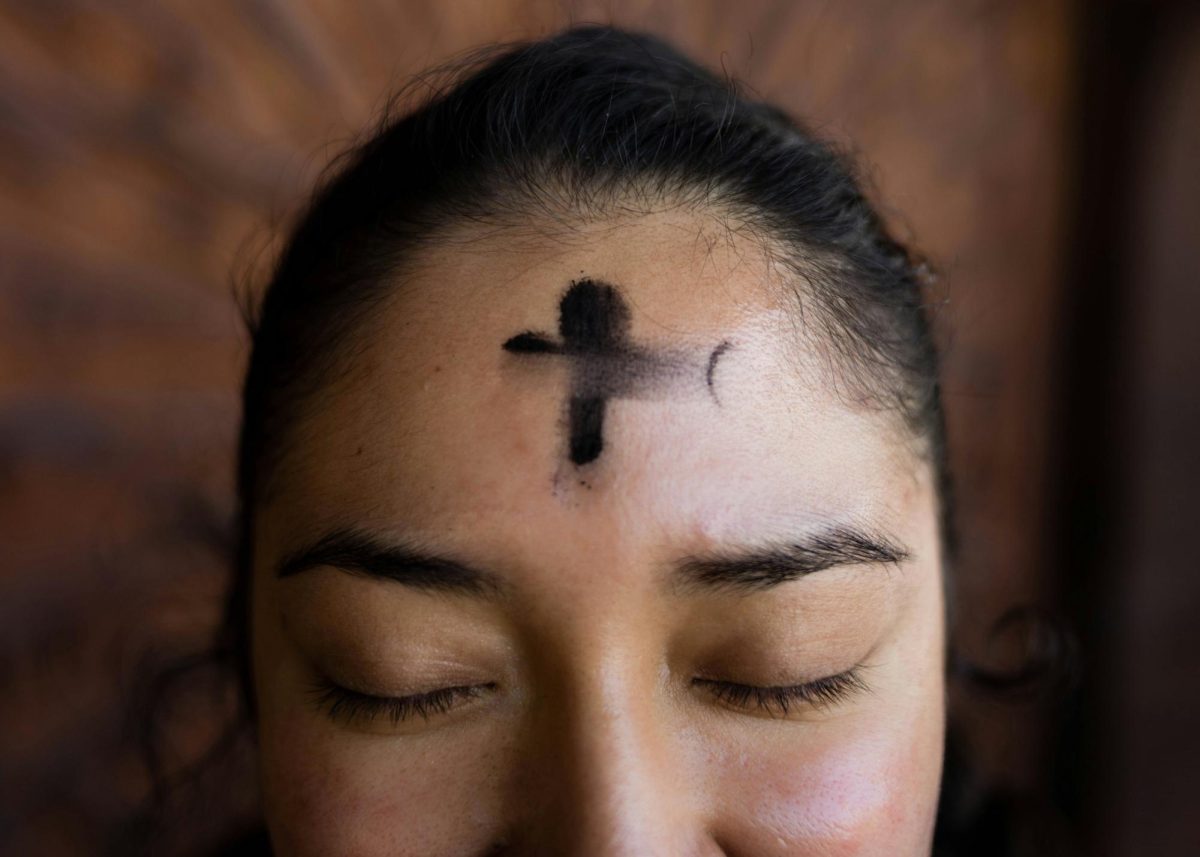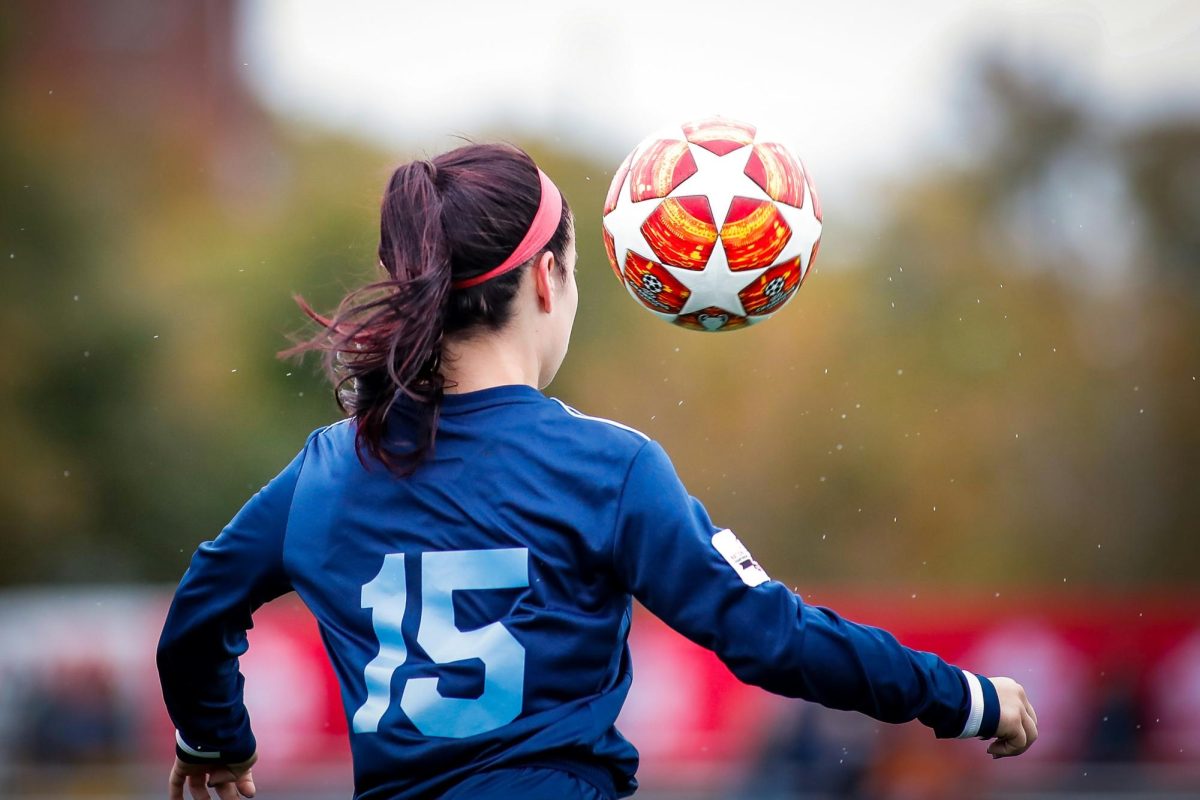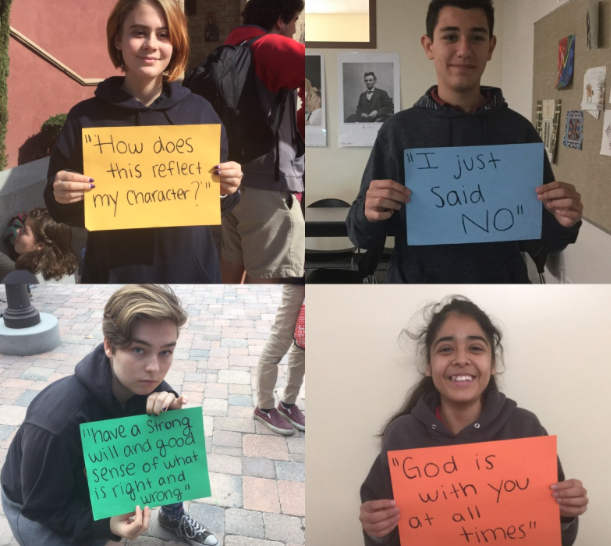A very tempting place
CCHS students Darby Goodell ‘18, Luis Garnica ‘20, Cat Noya ‘18, and Linna Luna Bravo ‘18 pose with their best words regarding peer pressure. Each student, having experienced pressure from their neighbors many times in their lives, share their advice and experiences about peer pressure.
Cathedral Catholic High School student Luis Garnica ‘20 knows all about the temptation to fall victim to instances of peer pressure involving drugs, which can potentially cause harm and danger to a teenager’s life.
“One time I was with a group of friends in a park,” Garnica said. “They had weed, coke, and all sorts of drugs that I was offered various times.
“I just said no.”
However, some students are not lucky enough to have just said no.
From the moment a teenager wakes up, the world continuously bombards him or her with pressures to look, to act, and to treat other people in a certain way. From small conflicts regarding how to dress to larger issues regarding drug abuse, teenagers encounter a variety of daily peer pressures, which is a universal problem in today’s society, causing teenagers to make potentially life-altering decisions.
In light of the recent passing of Red Ribbon Week, CCHS students vocalize their thoughts on the peer pressure they experience and speak out by defining, identifying, and finding solutions in regards to peer pressure.
“Peer pressure is when your friends are all doing something, and they try to get you to do it,” Kendall D’Ascoli ‘21 said. “Normally, it’s against your will, but you do it in hope it will make you fit in.”
Although Merriam-Webster defines peer pressure as “a feeling that one must do the same things as other people of one’s age and social group to be liked or respected by them,” the definition of peer pressure varies vastly among CCHS students.
“Peer pressure is when your classmates, co-workers, or peers in general have some influence on your actions or outcomes,” Darby Goodell ‘18 said.
But a greater questions persists: why do teenagers submit to peer pressure?
According to kidshealth.org, responding to peer pressure is a part of human nature.
Some confident and strong-willed people resist and stand their ground in a stressful situation, while others who lack the strength are more likely to cave.
Especially as teenagers, high school students desperately desire to fit in and feel accepted by the people around them. Many students surrender to the peer pressure they experience in order to keep themselves from feeling alienated from their friends and classmates, students said.
Craving to fit in causes many students to feel the need to change themselves or their normal actions.
“Sometimes I’m told I’m too big and need to be smaller, or I’m mean and need to be a better person,” Alicia Morales ‘19 said.
Peer pressure also affects how students feel about their outward appearance, potentially causing problems involving one’s self-esteem and confidence.
“When I was in 5th grade, a girl told me to stop parting my hair in the center of my head because it ‘would look better on the side,’ ” Claire Goodwin ‘19 said.
In casual cases, submitting to peer pressure can result in regret and embarrassment, but may not be life-changing or entirely dangerous.
“I have been peer pressured into wearing tight, fashionable clothing, and I went along with it in hopes of my peers liking me more,” Goodell said. “I felt humiliated when my teachers saw me dressed like that, but it’s something I look back on and laugh at.”
However, in more extreme cases, results of peer pressure are not something to joke about.
Peer pressure can introduce students to harmful substances such as drugs and alcohol. Teenagers, when presented with these dangerous substances, may not have the strength or confidence to deny their peers, especially if their peers continuously urge them to participate, students said.
Luckily, strong-willed teenagers are able to decline and ultimately escape falling down a dark, dangerous path, such as Garnica.
However, some people are not lucky or confident enough to say no.
According a 2016 National Institute on Drug Abuse study, 9.8 percent of sophomores, and 14.3 percent of seniors admit to the use of an illicit drug within course of a year. In addition, 40 percent of sophomores and 61.2 percent of seniors admit to the use of alcohol in the same study.
“I get pressured a lot to go to parties,” Cat Noya ‘18 said. “Once, some people were drinking illegally, but no one offered me any.”
Some results of peer pressure can even be deadly.
Alcohol is the most commonly used and abused drug among youth in the U.S., and the Centers for Disease Control and Prevention estimates alcohol is a factor in the deaths of 4,358 people under the age of 21 living in the U.S. each year.
Although not all uses of illegal substances are due to peer pressure, many are, and many have the potential to lead to serious injury and even death. Peer pressure is an extremely important problem in today’s society, and people tend to be unsure about how to approach it, students said.
Dealing with peer pressure as a teenager is extremely challenging, and being able to overcome the pressure takes immense strength and a keen sense of right and wrong. CCHS students, having experienced peer pressure throughout their lives, use their experiences to give their best advice on how to approach a peer pressure situation.
“I think you can overcome peer pressure by having a strong will and good sense of what is right and wrong for you, as well as having a good support system of friends and family that could come to your aid if you need help or advice,” Noya said.
Calling on the support of trusted friends or family members for advice can benefit those students caught up in their own thoughts. Although advice from other people may be helpful in peer pressure situations, students still need to develop a way they can make right decisions independently.
“Take a moment and run a list through your head,” Goodell said. “Would I like it if my parents found out? How does this reflect my character? Do I get anything out of this?”
In times of need, students can look to faith to help them make the right decisions when they feel pressured.
“Faith is a great guide to help me make the best decision for me,” Morales said. “God gave us a conscience and free will to think for ourselves. Also, we have easy rules to guide us, like the Commandments and the Beatitudes, that are meant to help us know what to do.”
Catholics believe God always leads his followers in the right direction, and trusting in him can help students overcome peer pressure and make right choices.
“You can use faith to help make right decisions by reminding yourself that God is with you at all times,” Linna Luna Bravo ‘18 said. “God will help you think about the right outcomes of your decisions.”
However, peer pressure does not carry an entirely negative connotation.
Positive forms of peer pressure exist that actually improve the quality of people’s lives instead of causing harm.
“I feel like peer pressure can give people the ability to surpass their self-made limitations and accomplish something they never would’ve thought possible,” Morales said. “I think that by having another person there to tell you to do something, you already begin to accept the challenge with an open mind and have the necessary confidence to succeed.”
Through certain, more gentle forms of peer pressure, students’ friends or classmates can even encourage them to lead better lives.
“I think that peer pressure is most often perceived as negatively, but I think it can be positive a lot of the time, like if your friend makes you do something that will be good for you,” Noya said. “A lot of my friends encourage me to do homework I wouldn’t have otherwise done.”
When 10 CCHS students were asked to rate the amount of peer pressure they experience at CCHS in a recent survey conducted by El Cid, with one being a rare experience of peer pressure daily and 10 being an ordinary experience of peer pressure daily, the average among the students resulted at 5.5.
Peer pressure cannot be avoided or shut out, but it must be learned to be dealt with forcefully and confidentially.
Scientifically, teenagers experience a greater difficulty putting their desires to conform to the side when they experience peer pressure due to less activity in the frontal lobe, causing them to give in more often, according to brainconnection.brainhq.com.
“I don’t really know if you could ever really overcome peer pressure because it’s always going to be there,” Morales said. “You could be the kind of person that doesn’t care in the least about what people think of you or what you should be doing and still feel some type of pressure to do something.
“Kids have it real tough at this age, and the world can be a very tempting place at times.”

During my third school year on the El Cid staff, this time honored with the title of Managing Editor, I plan to spend every moment not only striving to...





